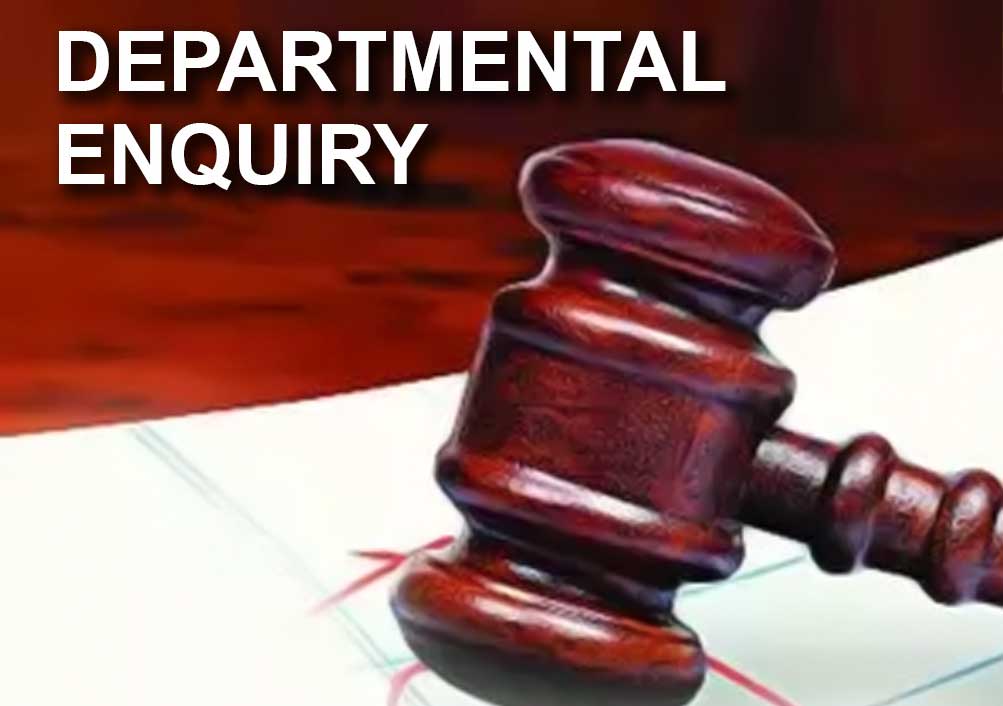By Akash Rathi, Advocate, Partner at Lex Maven
Recently the Hon’ble Supreme Court in the matter of Satyendra Singh Vs. State of UP and Another SLP (Civil No. 29758/18) vide order dated 18/11/2024 (Pamidighantam Sri Narasimha J. and Sandeep Mehta J.) has come across a case where delinquent was imposed punishment of Censure Entry as well as Stoppage of two grade increments with cumulative effect.
Procedure Adopted By Disciplinary Authority
In the present case the disciplinary authority issued show cause notice to the delinquent employee alongwith inquiry report to which reply was submitted by the delinquent and disciplinary authority after considering the reply imposed major penalty.
Major Penalties
The statement governments have framed relevant discipline and appeal rules which define and provide for major penalty which include –
Major Penalties
(i) Withholding of increments with cumulative effect;
(ii) Reduction to a lower post or grade time scale or to a lower stage in a time scale;
(iii) Removal from the service which does not disqualify form future employment;
(iv) Dismissal from the service which disqualify from future employment.
and certain exclusions are also provided in the rules.
Judgments referred
- Roop Singh Negi v. Punjab National Bank and Others – (2009) 2 SCC 570
- Nirmala J. Jhala v. State of Gujarat and Another – (2013) 4 SCC 301
- State of Uttar Pradesh v. Saroj Kumar Sinha – (2010) 2 SCC 772
Legal position discussed
- The Supreme Court held that mere production of documents is not enough, contents of documentary evidence have to be proved by examining witnesses.
- The Supreme Court held that even in an ex-parte inquiry, it is the duty of the Inquiry Officer to examine the evidence presented by the Department to find out whether the unrebutted evidence is sufficient to hold that the charges are proved.
- The Supreme Court held that evidence recorded in a preliminary inquiry cannot be used for a regular inquiry as the delinquent is not associated with it and the opportunity to cross-examine persons examined in preliminary inquiry is not given
- An inquiry officer acting in a quasi-judicial authority is in the position of an independent adjudicator. He is not supposed to be a representative of the department/disciplinary authority/Government.
Held
The Hon’ble Supreme Court in Para No. 17 held as follows –
Thus, even in an ex-parte inquiry, it is sine qua non to record the evidence of the witnesses for proving the charges. Having tested the facts of the case at hand on the touchstone of the Rules of 1999, and the law as expounded by this Court in the cases of Roop Singh Negi and Nirmala J. Jhala, we are of the firm view that the inquiry proceedings conducted against the appellant pertaining to charges punishable with major penalty, were totally vitiated and non-est in the eyes of law since no oral evidence whatsoever was recorded by the department in support of the charges.
Conclusion
This judgment underscores the well settled jurisprudence that no one should be condemned unheard and in cases of major penalty, opportunity of hearing includes opportunity to cross examine the witnesses and charges can only be proved by examination of witnesses and mere show cause notice, preliminary inquiry and consideration of reply is not sufficient.
Lorem ipsum dolor sit amet, consectetur adipiscing elit. Ut elit tellus, luctus nec ullamcorper mattis, pulvinar dapibus leo.

